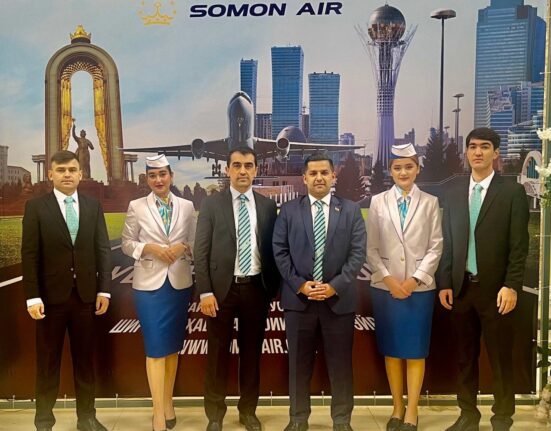People who board their dogs during the holidays will need to take extra precautions, experts say.
As outbreaks of a mysterious canine respiratory illness spread in a growing number of U.S. states, veterinary experts are urging dog owners to protect their pets during the busy winter social and travel season.
In Oregon alone, more than 200 dogs have been sickened since August by an illness of unknown origin that can cause a cough and pneumonia-like symptoms and can’t be treated with antibiotics, according to a report issued November 21 by the Oregon Veterinary Medical Association. Similar outbreaks have been reported in several other states across the country, including California, Texas, Illinois, Nebraska, Colorado, Massachusetts, Rhode Island, and New Hampshire.
It can look a lot like an illness known as “kennel cough,” which is often mild and can involve canine versions of one or more maladies like influenza, coronavirus, adenovirus or distemper that many dog owners have heard of before, says Jennifer Rudd, PhD, a doctor of veterinary medicine, a veterinary infectious disease specialist, and an assistant professor at the Oklahoma State University College of Veterinary Medicine in Stillwater.
“As with any viral respiratory outbreak, most cases will be mild and self-limiting, often resolving on their own over a few weeks,” Dr. Rudd says. “Unfortunately, some cases will be much more severe or even fatal.”
Signs of Respiratory Disease in Dogs
The best thing dog owners can do to ensure that pets with serious cases get prompt care is to call a veterinarian at the first signs of respiratory disease, like a cough or runny nose, Dr. Rudd says. It’s best to call ahead, so that dogs can limit contact with other animals, reducing their ability to spread the illness to other pets.
“While most cases will be mild and unalarming and can be managed at home, some cases progress rapidly to severe disease,” Rudd says. “Veterinarians can assess your pet’s risk and ensure the appropriate treatment is in place before it is too late.”
In most cases, dogs with respiratory illnesses are treated with lots of rest, fluids, and medicines to reduce coughing if it’s preventing sleep, according to the Cornell College of Veterinary Medicine. Most cases clear up without additional intervention within two weeks.
Rarer, more severe cases, however, can lead to pneumonia-like symptoms that may require more aggressive treatments and hospitalization to administer intravenous antibiotics, oxygen, and fluids, according to Cornell.
If dogs are up-to-date on all recommended vaccinations their odds of getting sick are reduced, and this will also make a severe illness less likely if they do come down with a respiratory bug, Cornell advises.
It’s crucial to keep sick dogs home and away from other dogs to prevent the spread of kennel cough and the new mysterious respiratory illness that’s spreading around the country, Cornell says. That’s because these illnesses can be spread when dogs are in close contact with other dogs: in grooming facilities, animal shelters, dog parks, and kennels where many people board dogs during their holiday travels.
“Dogs should avoid being in enclosed spaces with other animals due to the high contagiousness and rapid spread of the infection,” says Stéphane Paul, PhD, a professor at the International Center for Infectiology Research in France who has studied canine respiratory illnesses. “This is especially important at the moment, considering the lack of an efficient and rapid treatment.”
Boarding Your Dog Safely for the Holidays
If you planned to board your dog for the holidays, you should change those plans if you can, Rudd advises. Since that may not be an option for all dog owners, Rudd suggests the following precautions to keep your dog safe at a kennel over the holidays.
- Ensure they are up-to-date on all vaccines right away, including the core DAPP vaccine, Bordetella vaccine, and the canine influenza vaccine series.
- Select a boarding facility that requires dogs be vaccinated to board. You may also ask the facility if they have a plan to manage an outbreak if it occurs and whether or not they have a close partnership with a veterinarian they can call to help manage cases if they occur.
- Do not board your pet if they are displaying any clinical signs of respiratory illness such as a cough, eye or nose discharge, wheezing, or if they are acting lethargic and uninterested in food. Instead, call your veterinarian to get your animal evaluated as soon as possible.
Precautions — including not boarding animals for the holidays, if possible — are especially important if you have a dog at higher risk of severe illness, Rudd adds.
“Animals most at risk include puppies who have not completed their full vaccine series and who are not yet 16 weeks of age, as well as dogs who may be immune suppressed due to chronic airway disease, heart disease, kidney disease, or cancer,” Rudd says. “Any unvaccinated animal is at increased risk since these viruses and bacteria can exacerbate disease regardless of the initial cause.”







